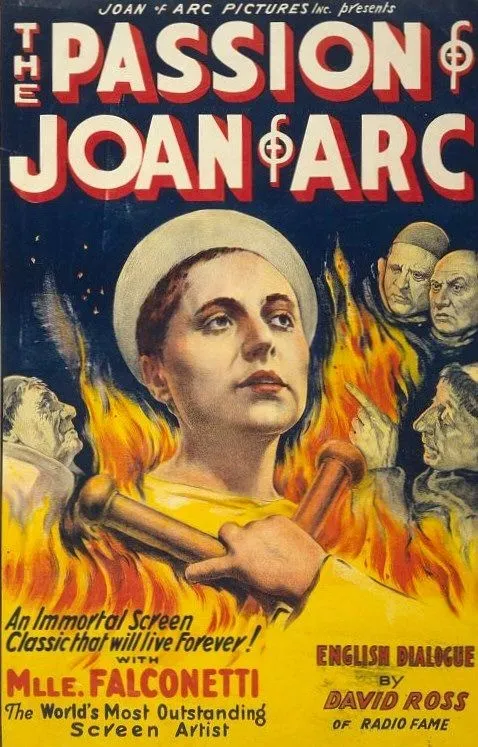The Passion of Joan of Arc (1928)

The Passion of Joan of Arc (1928) is a spare, intense silent drama that reconstructs the 1431 trial and execution of Jeanne d’Arc. Centered on her interrogation by ecclesiastical judges, the film follows Jeanne’s refusal to renounce her visions and faith as jurists and priests manipulate, accuse and attempt to break her. The narrative is simple and almost entirely devoted to courtroom sequences, Jeanne’s time in a cell and the final scenes of her sentencing and execution at Rouen. What makes the film unforgettable is its hypnotic visual style and raw emotional focus. Shot in black-and-white with stark, minimalist settings and many extreme close-ups, the camera lingers on faces and eyes, turning small gestures and expressions into a searing study of conviction, humiliation and suffering. The central performance conveys an agonizing mixture of spiritual conviction and human fragility; the court’s formal cruelty and the priests’ tactics are depicted with relentless clarity. As a viewer you should expect a powerful, often harrowing experience rather than conventional action or historical spectacle. The film is meditative and emotionally demanding: it immerses you in the psychological pressure of the trial, the isolation of the accused, and the moral stakes of faith versus institutional power. Ultimately it reads as both a portrait of a martyr and a cinematic exploration of conscience and injustice—an austere, moving work that remains one of the masterpieces of silent cinema.
Actors: Maria Falconetti, Eugene Silvain, André Berley
Director: Carl Theodor Dreyer
Runtime: 110 min
Genres: Biography, Drama, History
![]() 8.3
/10
8.3
/10
98
/100
8.1
/10
![]() 8.7
/10
8.7
/10